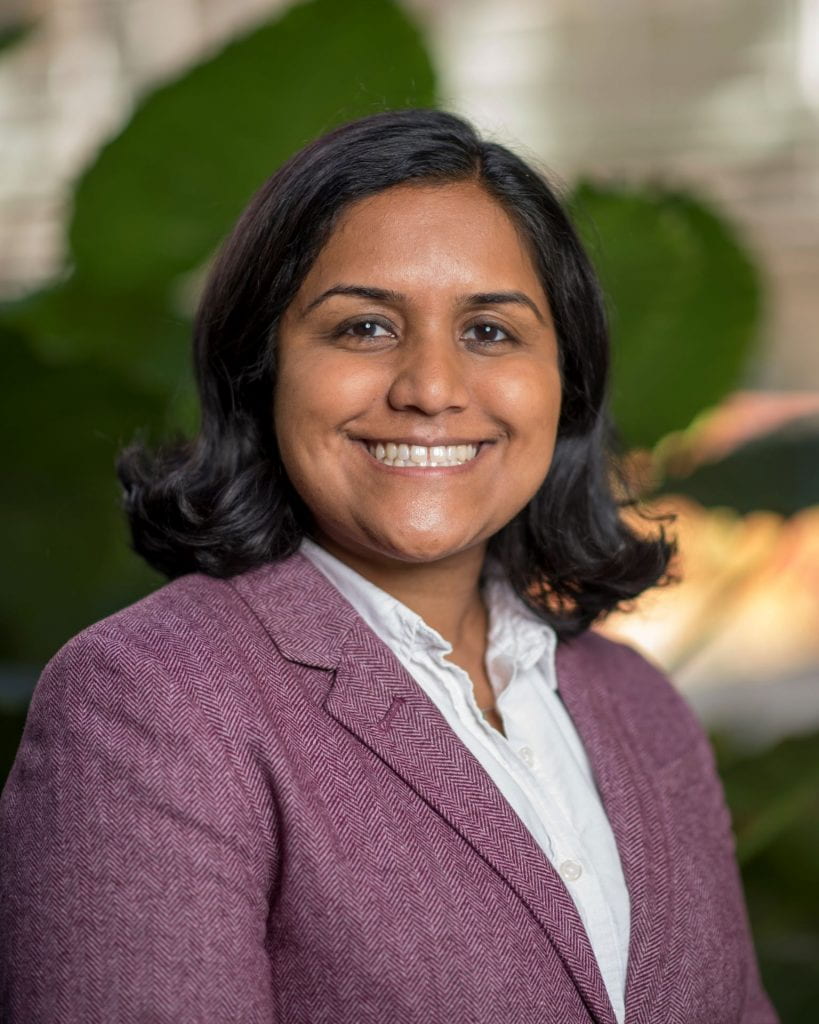This feature was originally written by the SJSU Division of Research and Innovation.

Saili Kulkarni, Assistant Professor of Special Education at San José State University, has been awarded a racial equity grant from the Spencer Foundation for her research studying the intersections of disability and race and the implications for PK-12 education, justice studies and educators.
The grant supports education research projects aimed at understanding and improving racial inequality in education. Kulkarni and her team will receive $75,000 to pursue their project, “Playing Together: Using Learning Labs to Reduce Exclusionary Disciplinary Practices for Young Children of Color with Disabilities.”
Nearly six years ago, Kulkarni and her colleagues noticed a dearth of literature on the subject of exclusionary discipline — such as expulsion and suspension — for young children of color with disabilities, so they decided to take matters into their own hands.
“The idea came from a combination of our own experiences as special ed teachers, but also the experiences that we had working with other early childhood special ed teachers in toddler classrooms and centers,” Kulkarni said.
She and her colleagues understand firsthand that early learning experiences can have long-lasting effects on student outcomes. Disabled students in minority groups have significant disadvantages, and Kulkarni wants to reframe how teachers support and educate them.
“The project is really thinking about how to reduce or exterminate these ideas of exclusionary and harsh discipline for young kids of color with disabilities,” Kulkarni explained. “There’s been a recent uptick in the news of kids of color with disabilities, particularly Black children, who are getting suspended or expelled from preschool and kindergarten classrooms for things that are considered minor.”
Her work seeks to understand why these harsh consequences for seemingly minor infractions are occurring. She plans to orchestrate a multi-disciplinary effort to work with parents, teachers, administrators and other stakeholders to address the issue.
This proposal was Kulkarni’s second go-round for a grant award. This time, she had the University Grant Academy’s (UGA) assistance, a San José State University resource led by the Office of Research designed to assist faculty in writing grant proposals and obtaining extramurally funded grants.
“The nice part about the UGA is that it’s really structured, and it gives you lots of resources,” said Kulkarni. “You get course release as faculty for a semester to dedicate time on developing and sending your project for funding. We spent the entire semester working on several different grant components, getting feedback throughout the process from mentors, and convening with peers to see what everyone else was working on to potentially find some elements or efforts to collaborate.”
Kulkarni attributes much of her success to her colleagues and her mentor Laurie Drabble, Associate Dean of Faculty Success and Research and UGA facilitator.
“Laurie gave me tons of guidance and feedback,” Kulkarni said. “She also encouraged me to reach out to other mentors to get additional feedback, and that really helped get our grant some of the much needed details that it was missing early on.”
“Saili worked really hard to take full advantage of the UGA for her first submission — funding on the second round is not surprising and well-deserved,” shared Drabble.
With leaders like Kulkarni spearheading research to attain racial equity in education, disabled children of color may have a greater chance of getting access to the support they need – instead of being kicked out of school where they are even more disadvantaged. She hopes her work can make a public impact that will provide children that have a lack of opportunities, get closer to their full potential, and ensure that all children have the chance to flourish.
“The UGA and SJSU Research Development are here precisely because extramural funding is very hard to get, it really is the norm that it takes two to three submissions and careful editing and revising each time before a proposal is funded,” noted Julia Gaudinski, Director of Research Development.
“I am thrilled to see that Dr. Kulkarni leveraged her work from the UGA and turned it into a successful re-submission.”